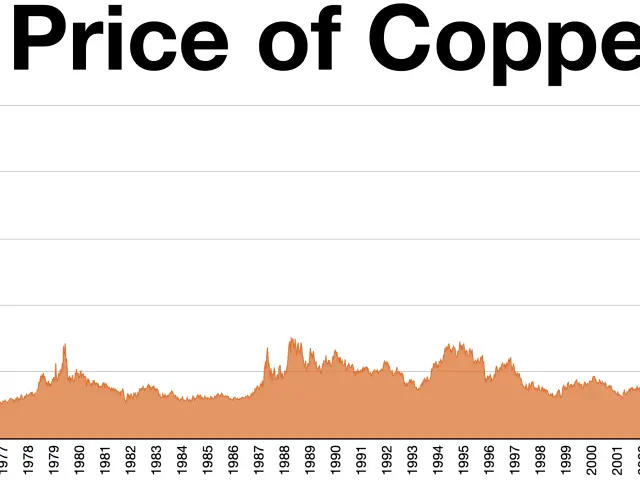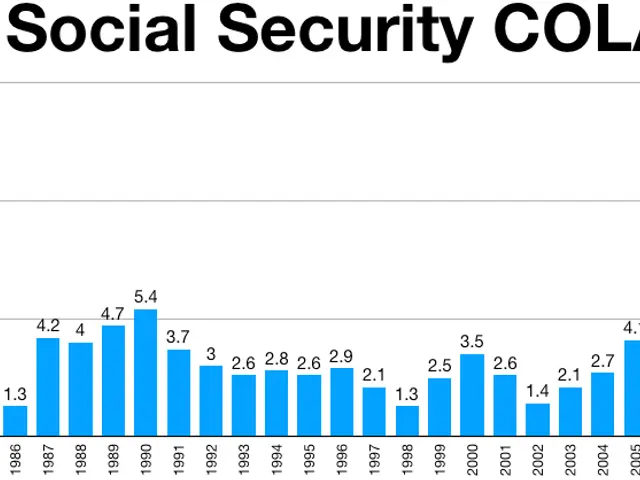Nightly heart racing: Possible reasons and solutions
Heart palpitations, the sensation of a racing or irregular heartbeat, can be a concerning experience, especially when they occur at night. While occasional palpitations are not always a cause for alarm, frequent or consistent episodes may indicate an underlying issue that requires medical attention.
One factor that could contribute to night-time palpitations is sleep position. People who sleep on their left side may be more prone to heart palpitations, according to a study. However, the exact causes of nocturnal palpitations are varied and can include a range of factors.
Anxiety and panic attacks, sleep disorders such as obstructive sleep apnea or nightmares, electrolyte imbalances and dehydration, hormonal imbalances like hyperthyroidism, low blood sugar (hypoglycemia), gastroesophageal reflux disease (GERD), consumption of stimulants such as caffeine or alcohol, especially close to bedtime, and underlying heart rhythm disorders are all potential culprits.
If you experience frequent or consistent palpitations, it's important to speak with a doctor. They will ask questions about when the palpitations occur, what sensations they cause, how long they last, how frequently they occur, what factors trigger the palpitations, lifestyle factors, and any underlying conditions you may have.
Common treatments and management strategies for night-time heart palpitations include lifestyle modifications, addressing underlying causes, and medical evaluation for arrhythmias. Lifestyle modifications might involve reducing caffeine and alcohol intake, especially in the evening, managing stress, maintaining hydration, and avoiding large meals before bedtime. Addressing underlying causes could involve treating sleep disorders with CPAP therapy, managing thyroid or blood sugar disorders, and controlling GERD with appropriate medications.
In cases of frequent, severe, or symptomatic palpitations, a medical evaluation by a cardiologist may be necessary. This could include ECG monitoring and, in cases of atrial fibrillation (AFib) or tachycardia, potential treatments such as medication or ablation.
It's essential to remember that while heart palpitations may be a symptom of an arrhythmia, not every person with an arrhythmia will feel the sensation of their heart beating irregularly. Therefore, if palpitations occur with additional warning signs such as chest pain, fainting, severe dizziness, or shortness of breath, prompt medical assessment is essential, as these could indicate a dangerous cardiac condition.
In conclusion, while night-time heart palpitations can be distressing, understanding their potential causes and appropriate management strategies can help alleviate concerns and ensure timely medical intervention when necessary. If you're experiencing frequent or consistent palpitations, it's always best to consult with a healthcare professional for a proper diagnosis and treatment plan.
- Diabetes, a chronic disease, can exacerbate heart palpitations due to its impact on cardiovascular health.
- Other heart diseases, such as atrial fibrillation (AFib), can cause irregular heartbeats leading to palpitations.
- Sclerosis, a neurological disorder, might not directly cause heart palpitations, but its complications can indirectly contribute.
- Ankylosing spondylitis, an autoimmune disorder, can affect heart health and potentially precipitate heart palpitations.
- Obesity, a major risk factor for various chronic diseases like diabetes and heart disease, can increase the likelihood of heart palpitations.
- Ulcerative colitis, a digestive health condition, can lead to chronic inflammation that might indirectly cause heart palpitations.
- HIV, a viral infection, can affect the cardiovascular system, potentially leading to heart palpitations.
- Macular degeneration, an eye-health condition, is not directly linked to heart palpitations, but it's essential to maintain overall health for optimal well-being.
- Depression, a mental-health issue, can trigger anxiety and panic attacks that, in turn, might cause heart palpitations.
- Spondylitis, an inflammatory condition affecting the spine, might indirectly impact heart health and may be associated with heart palpitations.
- Eczema, a skin-condition, doesn't directly cause heart palpitations, but it's a part of overall health that should be managed for holistic wellness.
- Bipolar disorder, a mental-health condition, can lead to anxiety and panic attacks that might cause heart palpitations.
- Dry eyes, a common condition, isn't directly linked to heart palpitations, but maintaining eye health is vital for overall well-being.
- Disease refers to any health condition, and understanding its predictive factors and management strategies is crucial, especially for chronic diseases like diabetes or arthritis.
- Arthritis, a degenerative joint disease, can indirectly affect heart health and potentially cause heart palpitations.
- Hepatitis, a liver disease, isn't directly linked to heart palpitations, but managing this condition is important for overall health.
- Degeneration, the gradual decline in the functionality of body parts or organs, can lead to various health issues, including heart palpitations.
- AQ, or asthma quality of life questionnaire, assesses the impact of asthma on a person's daily life and is useful in managing respiratory conditions like asthma.
- Breast cancer, a common form of cancer, isn't directly linked to heart palpitations, but it's crucial to prioritize breast health and early detection.
- Colitis, an inflammatory bowel disease, can lead to chronic inflammation that might indirectly cause heart palpitations.
- Dermatitis, a skin-condition, isn't directly linked to heart palpitations, but maintaining skin health is important for overall well-being.
- Psoriasis, a skin-condition, can indirectly impact your mental health, which, in turn, might affect heart health and potentially cause heart palpitations.
- Crohn's disease, an inflammatory bowel disease, can lead to chronic inflammation that might indirectly cause heart palpitations.
- Atopic dermatitis, a chronic skin disease, isn't directly linked to heart palpitations, but managing this condition is important for overall health.
- Cancer, a major health concern, isn't directly linked to heart palpitations, but early detection and treatment are crucial for best outcomes.
- Predictive analytics can help identify risk factors for various diseases, including heart disease, allowing for early intervention and management.
- Multiple sclerosis, a neurological disorder, isn't directly linked to heart palpitations, but managing this condition is important for overall health.
- Type 2 diabetes, a chronic disease, can indirectly affect heart health and potentially cause heart palpitations.
- Science continues to evolve our understanding of various diseases, including their causes, symptoms, and treatments, including heart palpitations and associated conditions.
- Sleep disorders, like sleep apnea, may contribute to heart palpitations, highlighting the importance of workplace wellness programs that promote good sleep hygiene and overall health management.






